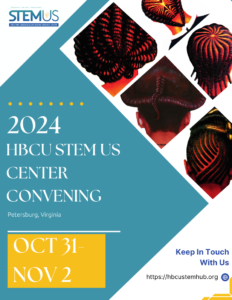In our last installment, I discussed David Allen’s concept of “clarity” one of the five stages of Getting Things Done (capturing, clarify, organizing, reflecting and engaging). I suggested that GTD was a useful system in 1. helping to determine the most important contribution you will make as an HBCU faculty member; and 2. making more effective use of the time available to make sure that what is ultimately most important will actually get done. However, I’d like to add one other possibility from our “gtd” (growing toward divinity) method as well- 3. Self-authorized permission to bring your calling to your job.
We are all familiar with the urgent pressures of academic life. I have found that it takes dedicated effort to include one’s self-determined career agenda inside the working day. Even activities that lead to promotion, like authoring manuscripts and analyzing data or reading the literature are important but not usually urgent. This means that these tasks can easily be relegated to the evening and weekends. I realized late in my career that the activities associated with the most important contribution of my job- writing, learning, thinking, imagining- did not usually take place while on the job. I normalized these important job activities as part of my home life.
I understand that bringing the job home is inevitable for knowledge workers whose primary tool is our minds. However, when the focus is continually tuned toward the urgency of other people’s demands then the work is no longer fulfilling or life-giving. It is chronic stress. An antidote for this is to find what is soul-fulfilling and life giving within your job description and then to accomplish the task in a way that does not kill you, more on that here in a previous post.
I found that the first step to find a soul-nourishing career in a soul-denying environment is to define for myself why I am there. I chose to make my work at an HBCU to mean more than getting paid or even more than helping students. I found my calling to be my own Experiment with Truth. I wanted to know if the principles that lie behind my spiritual beliefs really work toward making a happier, more fulfilling and successful life in the real world. I wanted to know if I could truly manifest what I envisioned. I wanted to see the human vulnerability and the God-like possibility in everyone, especially those who have a problem with me. I tried to test the hypothesis that no matter what I was going through, it would ultimately lead to my good.

Not everyone is able to get paid for what they love to do. I wanted to learn to love what I had to do.
The work that I came to love to do was Project Knowledge, the academic intervention research that is detailed in Hub Black paper #01 – Findings from Project Knowledge: A 10 year academic intervention study. In my career switch from “rat brains to freshmen minds” I did not have to trade in all of my neuroscience training but certainly moving from rodents to humans required different kinds of research parameters and, for me, a long learning curve.
I honestly believe that this research emerged from my commitment, not just to the work but also to something higher. I believe this based on the evidence of what I have observed as a result of the work. I have gained a greater understanding of how students learn to be college students at an HBCU and used that knowledge in my classes. I have been able to bring the training of bench science to an important social science question. Most importantly, I have been able to see how my research can be used to help a greater number of students at my own institution.
Last spring 22 students who had a collective GPA of 0.8 from the fall semester saw their GPA increase to over 2.3 in the spring semester. If you want to read more about this unprecedented result and the scaling effort that is now underway with over 150 and provisionally admitted students and 18 trained near-peer mentors, the Practice Brief can also be found here.






Leave a Comment